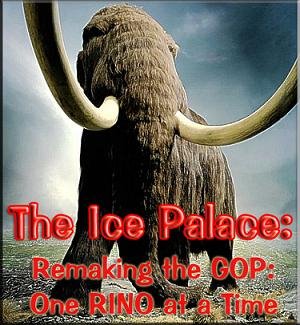I want my MTV, Benedict!
Translation of this piece: "I want to define deviancy down. I want to feel okay with aberrant behaviors, and want my neighbors to feel okay too. Just like a "living and breathing Constitution" made malleable to fit the times, the new Pope needs to bend the teaching of the Church to fit in with our whims du jour."
Habemus papam. "We have a pope."
After watching John Paul II neurologically decline and heroically suffer, the white smoke was welcome.
While Cardinals Hummes of Brazil or Danneels of Belgium would have given many of us more ecclesial hope, Joseph Ratzinger was installed as Benedict XVI exactly a month ago today. Who is this 78-year-old Bavarian theologian?
After attaining his doctorate in 1953, Ratzinger began university teaching and, at the Vatican II Council, served as a liberally minded theology expert.
The Rev. Hans Kung recruited him to the University of Tubingen. In 1968, at age 41, following campus unrest and the untidy dissent against Humanae Vitae (Paul VI's encyclical against hormonal regulation that Bishop Wojtyla, the late John Paul II, even more strongly opposed), the Bavarian professor left Tubingen and allied with Paul VI and Wojtyla.
Soon afterward, elevated to bishop and then cardinal, Ratzinger gravitated toward Augustine and away from Thomas Aquinas. It was dualism theology: the city of God and the city of man, in conflict.
He wrote, "Mankind comes to itself not through what he does but through what he accepts." And again: "Faith comes not from reflecting. Its essence consists in the rethinking of what has been heard."
The ideals of Vatican II — loosening of hierarchical authority, more internal debate and honoring of individual conscience — were gradually de-emphasized in the prelate's thinking.
His view of a less horizontal Catholicity, by which laity and bishops could counter Rome's dominance, gave way in 1968. He now criticized Kung's views as "school certitude" and instead embraced dogma that does not change.
Church hierarchy
All indications are that centralization and absolutism of the papacy will become, once again, more entrenched. This seems especially distasteful to many American Catholics who have a strong sense of democratic governance.
Moreover, the early years of Catholicism in America under Bishops John Carroll and John England were remarkably open and egalitarian.
The new pope's reign has begun with some positive gestures.
However, optimistic sentiments are dampened by last week's forced resignation of Thomas Reese as editor of "America," a long-standing Jesuit publication.
It seems "America" had a tradition of presenting both sides of a theological question. This could not be reconciled with Ratzinger's Congregation for the Doctrine of the Faith.
All in all, about 140 theologians have been variously punished or silenced under the new pope's former office. Is this any way to run a church?
Dark days
The Catholic Church has suffered dark days before, notably the pontificate of Pius X.
This pope (1903-1914) led a campaign against his own theologians and imposed an Oath Against Modernism on all clerics. It took Benedict XV to bring some reconciliation to the church.
Our new pope has hinted that he too, as Benedict, will bring healing, promote collegiality and mitigate divisiveness.
However, that begs the question that Arthur Jones of the National Catholic Reporter asks: Can the sheepdog become the shepherd?
As you may surmise, I don't share the optimism of some regarding this pontificate.
However, as a lifelong Catholic, I do hope and pray that Benedict XVI will be somewhat redirected to use his prestigious role as Holy Father to really address the entire Catholic community.
I also hope he will call on his cardinals and bishops to show at least a tolerant respect to theologians and scripture scholars as they debate various theological views in their quest of God.
And just as importantly, that he call on his Catholic subjects to show sensitivity and love to each other and to other Christians despite any differences in their journeys of faith.
My grandfather was a Catholic-educated Bavarian, and he would agree.
Have I gotten that right?















|